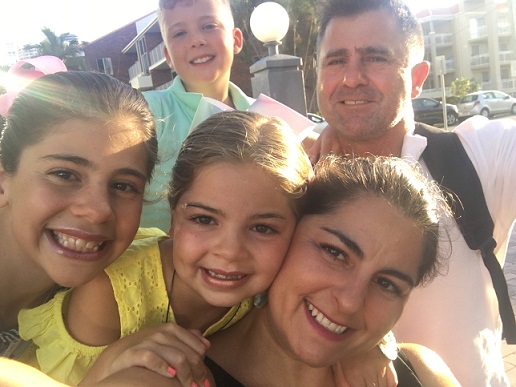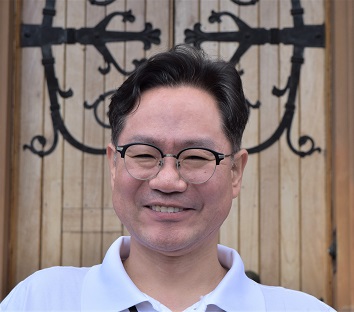Peter MALONE
MSC Mission Office Relocation
MSC Mission Office Relocation
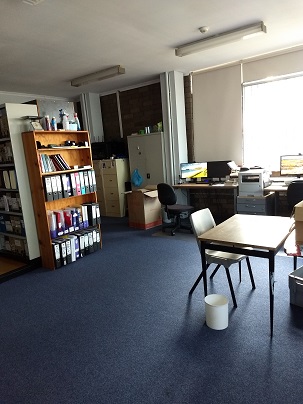
Roger Purcell, MSC Mission Office Director, has sent some photos.
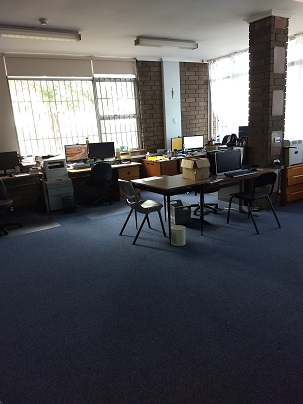
In late 2019 we were offered a new site for our Office in the Chevalier Resources Centre in what was known as the “Blue Room”. This is a beautiful big room, with large windows and a great outlook. An offer too good to refuse!
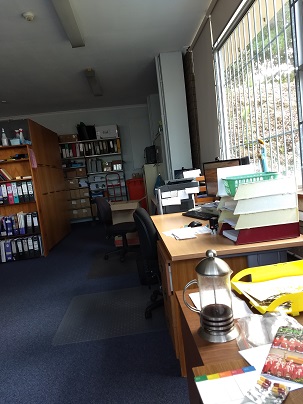
After appropriate discussions and hours of work, we moved our entire operation. In the Monastery we had workspace, files, books and more, spread in five different rooms, on three levels. We now have everything in the one space, plenty of room for all the staff to work, for meetings and with room to spare. It is a great space to work, giving new life to our work, and I love it!!
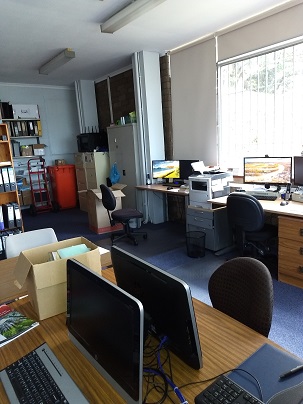
A Reminder, Mission Alive, reflections by Roger Purcell on Facebook and Youtube
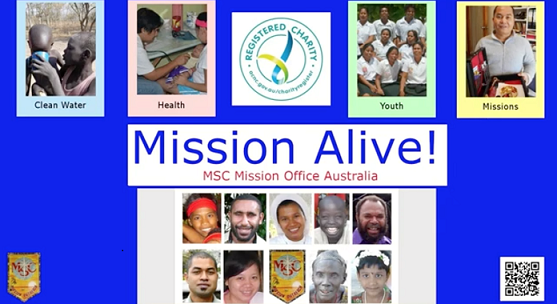
Fr Michael Lau - New Director of Papua New Guinea Mission Office
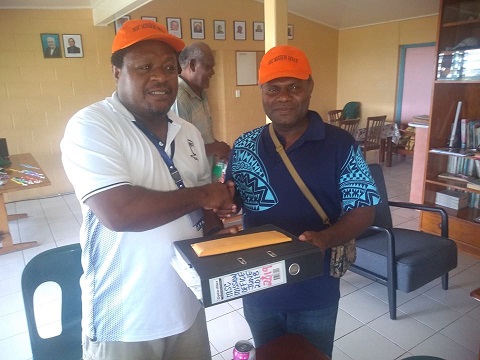
We are happy to welcome Fr Michael Lau msc as the new Mission Office Director for Papua New Guinea taking over from Fr Fabian Manukialona msc. Projects officer Sean Donovan travelled to Port Moresby to assist with training and setting up Michael with our systems and processes. The 2-mile community were also graced with a visit by Cardinal John Ribat msc.
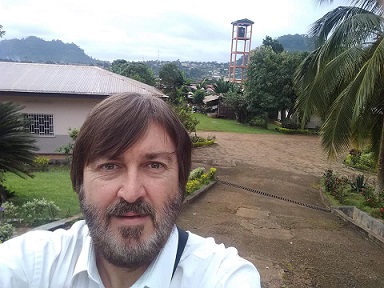
Sean’s follow up trip is postponed for the moment.
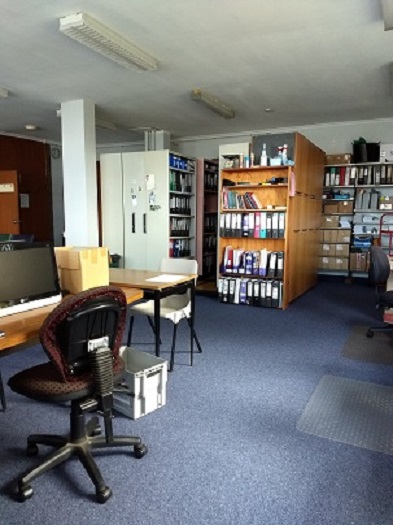
MSC around the world, the Community in Venezuela, 2020, Pandmemic and Ministry
MSC around the world, the Community in Venezuela, 2020, Pandmemic and Ministry
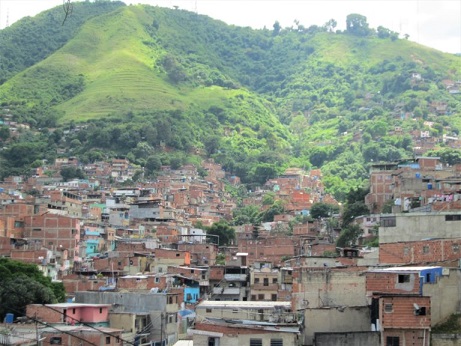
Venezuela is a country of great difficulties in recent years, some political upheaval, the challenge to the president, international support for the Opposition Leader, sanctions, poverty... The MSC have been in Venezuela for over 50 years and have local and Irish members...
Like everyone else, the MSC community in Venezuela also finds itself in the middle of this current situation, and despite the circumstances, we are doing as well as possible. Fr Vicente Screene and Fr Tomás Jordan, who are the oldest, are in good health, the rest of the brothers are generally well. The issue of our pastoral ministry comes to the fore; it is not easy to be able to have physical and face-to-face contact in pastoral and ecclesial situations while living this quarantine at home. Both the Irish and Venezuelan MSCs are continuing to evangelize as far as possible through social networks and digital media, as well as responding to emergencies, and where possible bringing viaticum or the sacraments to families, trying to support the domestic church.
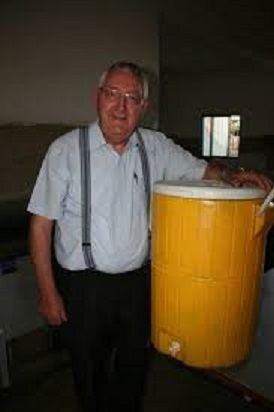
Vicente Screene
It is important to know that things in Venezuela are not at all well, and even more so in these times of Pandemic; where there are no supplies or materials to help care for the sick and those affected. The official numbers of those affected are inaccurate according to many doctors and specialists in the field of medicine in the country. Doctors do not have health insurance: they are true heroes. Likewise, there is an endless list of things that affect the nation and especially the poorest class (but also the non-poor as well). There is no water in many places, no electricity, no internet and no telephone signal. In many places the situation is going from bad to worse. There is no work and therefore there is even more poverty and desolation, especially for those who work informally.
There are many things that cause disruption to social, psychosocial, psychological and emotional life. Non-governmental organizations and church and religious organizations are trying to help in the midst of this pandemic with food and materials to protect against the virus, offering whatever they can to help.
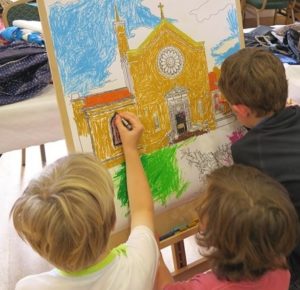
However, to buy or acquire some items, in certain places they now demand payment in foreign currency, usually dollars. This is due to the fact that a lot of merchandise arrives from across land borders and merchants have had to pay what has become called the “vaccine”(a bribe/tax), which is a high amount of money that must be paid to corrupt officials in order to let the goods pass: food, medicine, surgical materials, among others. Of course, those who transport the goods also have to pay the normal customs duties and import taxes. It is a very complex situation to understand, but this is the reality now in Venezuela.
The MSC in Venezuela, thanks to the Irish Province and its benefactors, are able to help those most in need with food, medicine, chemotherapies, materials and other aids according to the needs of the specific case.
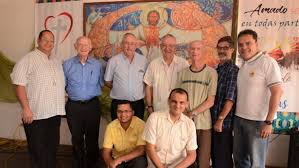
Celebrating 50 years of MSC in Venezuela
In each parish or ministry, every MSC is helping provide supplies through this type of social ministry. It is not easy for us to be quarantined, but each one tries to do the best that they can. We always appreciate the help and support of the provincial administration. The Region in Venezuela, both in Caracas and in Maracaibo, is working on behalf of the most disadvantaged, but our situation is very complex, and each day the number of those in need is increasing; we remain at the forefront.
This time has also served for a deeper personal encounter with Christ. Some of us perhaps feel as if we are living a monastic life, because it is not easy for us to leave the field of pastoral and social ministry to retreat to the cloister, but it has also served us for good and allowed us to attend to personal care.
Venezuelan MSC community
Leadership Team

Midweek photo stories
Midweek photo stories
At Cuskelly House
Recently, the Blackburn community sent some tongue-in-cheek photo suggestions as to what to do in lockdown time.
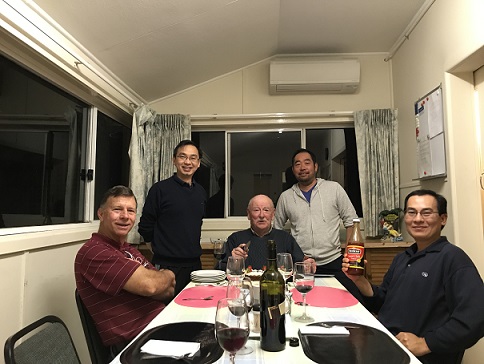
However, they did take some time in May to celebrate Brian Gallagher’s 58th anniversary of profession (photo by Anh).
A Ted Merritt anecdote.
Malcolm Fyfe sent this communication from Dave Reilly.
There is a half-page obituary titled "Life of Service comes to end" written by a long time journalist Steve Menzies in Friday's Centralian Advocate. It includes one of the lovely photos of Ted with Bishop Eugene.
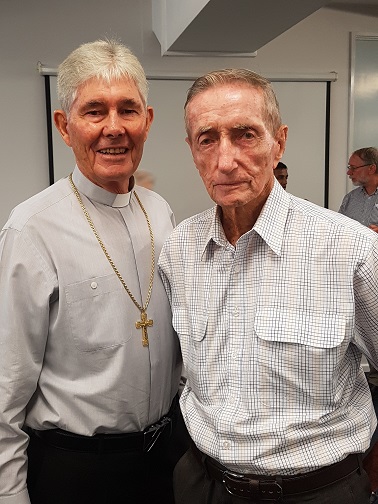
This article refers to his time at Santa Teresa 1980 -1983 so I am sure that Arrernte people will be very pleased to read about Br Ted. Only the other day I came across Brian Stirling who is now in his late fifties and was a very young man working in the garage at Santa Teresa.
He told me a story which goes a little like this: I was travelling from Darwin to Alice Springs in an old car and broke down close to Adelaide River. It was getting on dusk when a Toyota Coaster Bus stopped to render assistance.
The driver got out and asked in a deep voice what was wrong. Ted recognised Brian and said " Brian get out of the way and let me fix it for you!" Brian was pleasantly surprised. Ted fixed the car. Thankful for
Ted's unexpected appearance and assistance , Brian has never stopped talking about it every time I visit him in hospital. As for the bus load of passengers, well they had to wait until Ted had completed the repair!!
Brian works as an interpreter in both the law courts and Centrelink. He is also one of the traditional owners and has been chair of Lhere Aretepe Aboriginal Corporation just recently.
Keith Michael Fox RIP
Yesterday we posted Malcolm Fyfe’s tribute. Leo Wearden has sent a photo. The funeral will now take place on May 27th.
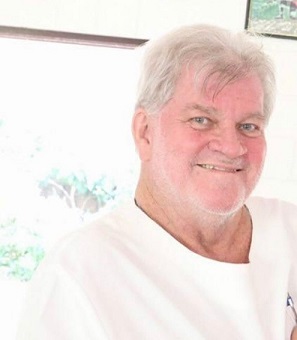
MSC Mission Office reflections.

“Mission Alive” continues on YouTube and the link can be found on the Mission Office website. Roger Purcell has been using social media to communicate from the Mission Office.
Keith Michael Fox RIP: Tribute to a Lay Missionary
Keith Michael Fox RIP: Tribute to a Lay Missionary
Fr Malcolm Fyfe has sent this story of a man who gave much of his active life as a Lay Missionary in Port Moresby and Darwin.
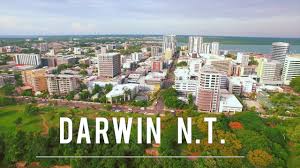
It is with great sadness that we share the news that Keith Michael Fox died Friday, May 15th, at his home address in Bagot Road, Darwin. Mick had been suffering from significant medical issues for quite some time. He was 70 years of age. He is survived by his 4 children Liam, Conor, Nuala, Riona and their mother Chris.
Mick was born in Bundaberg 1949, the second of 3 boys David, Mick and Shane. His father worked on the railways and the family moved to Tully in North Queensland while the children were still young.

Mick became a Catholic at 16 years of age and a couple of years after leaving school, he put himself through years 11 and 12, so he could enter the seminary. After a year or so, he decided the priesthood might not be for him. He then went to PNG as a lay missionary in 1972 as Secretary to Archbishop Virgil Copas msc in Port Moresby. There were many lay missionaries in PNG at the time, but things were changing as Independence approached (1975), with a lot of local unrest prevailing. After a couple of years, Mick went further afield to work with the French Missionaries of the Sacred Heart in the Port Moresby area. The French priests were so grateful for Mick’s work with them that they subsequently organised a Papal Honour for him.
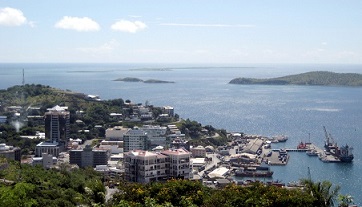
In 1980 as Director of Catholic Education, I recruited Mick as Assistant. With wife Chris and their young family, they initially lived and worked at the Gsell Centre for Catholic Missions. Both daughters, Nuala and Riona were born here.
In the CEO of those days, Mick was something of a factotum, he could do practically anything and do it competently.
I have received the wonderful news that at least one of the four children, Conor, has been able to get an authorisation to travel from Brisbane to Darwin for their father’s funeral.

Mick will be mourned by friends and acquaintances and by the many people he assisted over the years as an active member of the St Vincent de Paul Society, as a very committed member of the St Martin de Porres Parish and as Resource Person for migrants and refugees on behalf of the diocese.
In summary, the Catholic Diocese of Darwin acknowledges Mick’s extraordinary amount of pro bono lay ministry dating back to his arrival here 40 years ago.

Requiem Mass for Keith Michael Fox will be celebrated next Monday May 25th by Bishop Charles Gauci in St Mary’s Cathedral, Darwin at 10 am.
A Family Story. The Trincas. OLSH Parish, Randwick
A Family Story. The Trincas. OLSH Parish, Randwick
Although Paul and Eileen Trinca originated in opposite directions from Sydney, they decided to settle in the Randwick area in 2006 ahead of starting their family. They are blessed to have three adoring children Mollie 12, Harry 10, and Charlotte 9. They have been active members of the OLSH community since this time and heavily involved originally with Platinum Pre School and then subsequently in OLSH Primary School community attended by their children. Eileen has been the President of the school’s Parents and Friends Association for the last 3 and a bit years, something that she enjoys doing and her way of putting something back into their community.
The children were all christened at Our Lady of the Sacred Heart by Eileen’s uncle Father Brian Bailey, . They were so blessed to be able to enjoy their spiritual welcoming into the Catholic faith by a close family relative, something that not all families can experience. Eileen’s Auntie, Sr Patricia Bailey, a Dominican Sister, was also at their christening and has continued to provide spiritual guidance with her many visits to see her much loved grandnieces and nephew. Auntie Trish was awarded an OAM last year for her service to education, particularly for the deaf and hearing impaired.
Paul and Eileen’s three children all lead a full life enjoying playing a variety of sports, which generally Paul and/or Eileen are also involved with through either coaching, managing or just cheering from the sidelines. Their children also enjoy bike riding with their friends, learning a musical instrument and cooking from time to time to help Mum in the kitchen. They all have a strong sense of family and love spending precious time with their Grandparents, Aunts, Uncles and many cousins on both sides of the family.
Paul was born and raised in Bellambi, a northern suburb of Wollongong, to an Australian born Italian father and an Australian born Scottish/Irish mother. He had a Catholic upbringing with an older brother and sister and a younger sister, where they attended Mass at the local St Columbkille's Church, Corrimal. Paul grew up living next door to his Italian grandparents in a double block where they grew fresh fruit and vegetables, but grapes were the most abundant produce. Result? The family were able to make their own wine and jam. And of course, Paul and his siblings would delight in the annual grape foot stomping ritual.
Paul, an Electrical Engineer, has spent most of his time working for BlueScope Steel either initially as a cadet, as an employee for almost 20 years or as a contractor as he is currently engaged. Due to his connection with a German company during a project at BlueScope, Paul sought to expand his horizons and worked for them in a project in Brazil. Paul found it uplifting to experience such a different culture to our own in a country that openly promotes their religious beliefs. It was beyond awe inspiring to visit Mount Corcovado and be at the base of such an iconic religious monument to Christ the Redeemer.
It was a result of Paul’s adventure to Brazil that he met Eileen. Not in Brazil! But locally at a pre-Brazil party at Clovelly beach. Paul was fortunate enough to meet Eileen, and the rest they say is history.
Eileen Bailey was raised in Maitland with her three brothers, from a devout Catholic father with an Irish background and a mother with a Lebanese background. She moved to Mosman with her Mum and three brothers when she was nine. Eileen attended Sacred Heart Primary school in Mosman before going to boarding school, Frensham in Mittagong for years 7-9. She returned home to finish high school as a day student, although she really missed the adventure of boarding!
Eileen’s grandmother was an amazing cook of Lebanese food from recipes which were passed down through the generations. Eileen is keen to keep this tradition going and is forever getting tips and techniques from her mother. Eileen is fortunate to have many of these recipes handed down to her through her personally signed Great Aunt’s cookbook.
Eileen was lucky enough to do a lot of travelling with her Mum as a child, which really fostered her love of travel. From Eileen’s journeys around the world, she has always been drawn to the different cultural and religious differences of the countries she has visited. But nothing has deterred her from her own strong beliefs due to her strong Catholic background and upbringing. This love of travel led Eileen to work as a travel agent for many years before starting a family.
Her favourite part of the newspaper is still the travel section!
MSC in Vietnam and Beyond: Mark Hanns MSC
MSC in Vietnam and Beyond: Mark Hanns MSC
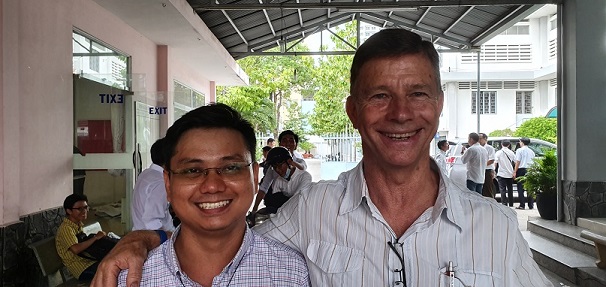
At the request, encouragement, prompting and arm-twisting of our Provincial superior to go to Vietnam to run a retreat and summer school for our seminarians, and despite my protestations that I was lacking the necessary qualifications, I surrendered to the superior’s sacred summons, and Fr Chris McPhee and I flew together to the newest sector of our province via Singapore on 2 June.
In the first week when we left Australia we visited Singapore. What a place! It’s like living in the movie The Truman Show. It’s perfect! Everything is clean, manicured and perfectly thought-out and well-ordered. I think every city and shire councillor, and every parliamentarian should go to Singapore to learn how to plan and organise and get things done. The people are friendly, and smile and say “G’day” when you pass them in the street, much like Tasmanians do… except Singaporeans don’t actually say “G’day”. They say something else that’s not Strine. Our main purpose in visiting Singapore was to visit our recently ordained Krish Mathavan’s mother and father as there are no other MSCs in Singapore. Krish is currently PP of Moonah, Hobart.
When Chris and I arrived in Vietnam I travelled six hours up north of Saigon to the mountains and a retreat house with 14 of our men, those who were post novitiate and not yet finally professed. It’s beautiful up there. Every second mid-afternoon, the annual rainfall of Hobart fell upon us. We were at a Salesian retreat house at K’Long. The retreat house director knows a few of our Salesian priests and brothers in Australia and even here in Tasmania. He even knows Boys’ Town in Engadine, in The Shire where I grew up. Small world, huh?
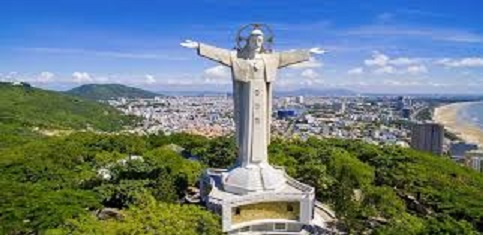
People crank their lives up at about 4.30 am there. Churches ring their bells at 4.00 am. On the retreat we took it a bit easy and didn’t get ourselves up till 5.30 am! But a siesta is customary every day. That’s a priceless part of the culture which I applaud! I think the retreat went well. I read their evaluations. They went gently on me. Actually, they awarded me a high distinction. After all that trepidation it is satisfying to know that the retreat hit the mark.
They’re a superb group of men. I’m greatly impressed with them. It’s great to actually know them now. It’s their custom of respect to address an elder in position or age as “Uncle”, and so they did with me. That was a reminder of my age! They professed their vows on the Friday, and then on the weekend we travelled out to Long Hai near Vung Tao for their holidays and summer school which I had to lead. I fumbled through it. I’d never done this stuff before. I’ve learnt it, but never taught it. Oh well, another life experience. I gave them a taste of the practice of spiritual direction.
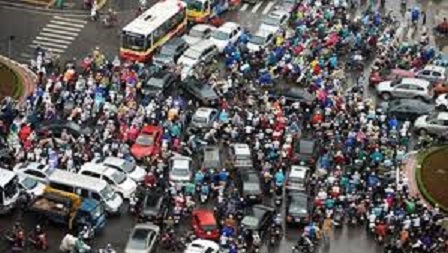
Ho Chi Minh City is bustling with motor scooters and bikes. There are millions of them. And it seems that the road rules are just guidelines, really! While they ride and drive on the right side of the road most of the time in principle, they weave in and out on the wrong side too, and up on the footpath when it suits,… and no-one crashes! Everyone makes way for everyone else. But they blow their horns constantly to let each other know they’re coming. One bike will carry Mum, Dad and two kids. Another shopkeeper will carry everything for his store on his bike, the load bigger than his entire family! I rode with great trepidation on the back of a scooter on the first ride, then decided to trust the protection of the patron saint of travellers - St Christopher, Jesus Mary and Joseph, and God the Father (gotta have big back-up), and the rider, and the 750,000 other riders…. And survived! But I’m not up to doing it myself.
Vietnam is quite lovely, as are its people. They are immensely considerate and kind. When I walked anywhere around Saigon and Long Hai, I was the one and only Gringo, and an object of curiosity to them until I said hello, and then they’d break into a smile and say Hi. "Sin chao" is "hello". The kids love to shake hands and speak as much English as they can, and draw it out of this foreigner. There seems to be real harmony, too, among people and religions. In one street there’ll be a Catholic church and in the next street there’s a Buddhist temple, especially in Saigon and surrounds. The government has softened its stance against the Church over the decades and now it is quite tolerant, yet still with limitations.
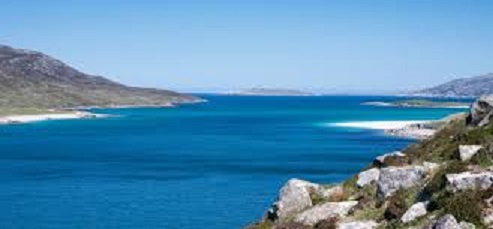
For my birthday four of the seminarians drove us from Long Hai down to Vung Tau and climbed the two mountains with the huge statues of Christ the King and the Virgin Mary, similar to the statue in Rio, Brazil. We swam at Vung Tau where I taught a ten-year-old boy to swim. His mother saw me swimming and decided I could teach him, so we did. That was satisfying to see a kid go from not swimming to swimming in half an hour. When we arrived home, the lads had organised a birthday bbq, cake, beer and sparklers. Great blokes and a great day. It’s damned hot there. 31 degrees and 80% humidity. Sweated buckets climbing the mountains.
Almost every house there has a small industry in the front of it and every tenth house is having a makeover or re-construction. People are really industrious. The country is obviously prospering. Good luck to them. One shop will repair motor scooters next to another shop selling bridal-wear next to a barber shop next to a karaoke bar. It’s all very eclectic. And every other house has a life-sized statue of Mary at the front. Vietnam reminds me a lot of Mexico. It’s hot and humid, and the houses are all narrow concrete houses like the Mexicans’. On the highways they have open-walled cafes with plastic chairs, and the owners lie around in Mexican-style hammocks until someone comes. And there are hammocks for the weary travellers. The food’s cheap and tastes superb. (How did we survive our childhoods on bangers and mashed potato?) My mandatory gut infection only lasted forty-eight hours on the first round. Then again a couple of weeks later. No big deal. It was gone by the following night. The beer’s cheap there too.
I went to the old South Vietnamese Presidential palace in Saigon. You may remember that news footage in some documentaries of the last helicopter lifting off with all those people on board and the thousands more on the roof of the building and around it on the last day of the war when Saigon fell to the northern troops. That’s where I was. That, and the war museum were unimaginably haunting, the latter being gruesomely upsetting. The war museum is presented in a very even and measured way, and it’s as I remember the news reporters reporting on it.
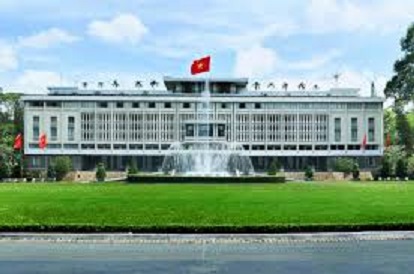
A few of us, including Fr Bogey (Provincial) and Fr Nords (Novice Master) from the Philippines, travelled down to the Mekong Delta before we continued to Long Hai, and some Sisters of Providence there organised a boat trip on the Mekong for us. Again, the kindness and hospitality of theirs was outstanding.
Leaving Vietnam at the end of the month I travelled to Korea and visited the DMZ. (That’s dee em zee for Koreans and Americans, but dee em ZED for Australians!! Point emphasised!). I planned to lean across and shake hands with young Mr Kim III. (He sent his apologies that he couldn’t meet me. He was still recovering after meeting the US president at the DMZ). Being there was historically fascinating, especially as I was accompanied by a veteran of the Korean War. He didn’t have the same fascination as I did. At ninety years old and feeling exceedingly fatigued after the drive, he said, “Yep. Been here before. I’m tired. Let’s go home,”… ninety seconds after our arrival.
The Provincial superior of the Korean MSC province, Fr Benedict Ko was very excited to meet with another MSC all the way from Australia. The sense of brotherhood was spontaneous. We travelled over to the MSC formation house near Incheon and received a truly enthusiastic welcome there and joined in the monthly Mass in honour of Our Lady of the Sacred Heart attended by three hundred people. Fr Benedict included me in the celebration and introduced me to the congregation and invited me to address them from the pulpit. Following the Mass we joined the core group of organisers for a magnificent Korean BBQ at a restaurant. Again, Asian hospitality has raised the level of hospitality to a higher level. I’m so pleased to have had this encounter with our MSC brothers and sisters in Korea. In a small way it strengthens our MSC brotherhood/sisterhood internationally and interprovincially. And importantly the Vietnamese and Australian links are strengthened.
After an overnight flight home and every day since, I’ve had the long awaited Vegemite on toast and real leaf tea in a pot.

Laughter in times of pandemic stress.
Laughter in times of pandemic stress.

With some relaxation of restrictions in some parts of Australia, there is some relief. But laughter is a great relief in times of stress.

Research has shown that the health benefits of laughter are far-ranging. Studies so far have shown that laughter can help relieve pain, bring greater happiness, and even increase immunity. Positive psychology names the propensity for laughter and sense of humor as one of the 24 main signature strengths one can possess.

- Physical release: Have you ever felt like you have to laugh or you'll cry? Have you experienced that cleansed feeling after a good laugh? Laughter provides a physical and emotional release.

Distraction: Laughter brings the focus away from anger, guilt, stress, and negative emotions in a more beneficial way than other mere distractions.

- Social benefits: Laughter connects us with others. Just as with smiling and kindness, most people find that laughter is contagious. So, if you bring more laughter into your life, you can most likely help others around you to laugh more and realize these benefits as well. By elevating the mood of those around you, you can reduce their stress levels and perhaps improve the quality of social interaction you experience with them, reducing your stress level even more!

From the site: verywellmind.
Laudato Si Week, May 16th-24th
Laudato Si Week, May 16th-24th

The Pope is inviting communities across the world to join him in celebrating Laudato Si’ Week from May 16-24 this year. 24th May 2015 was the date of the Encyclical.
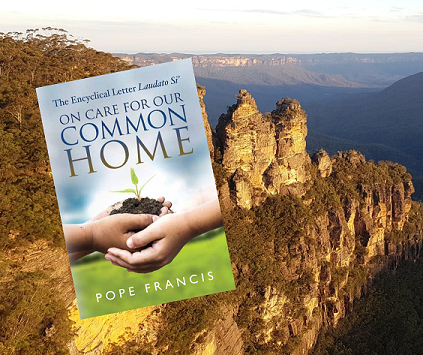
“I urgently appeal, then, for a new dialogue about how we are shaping the future of our planet. We need a conversation which includes everyone, since the environmental challenge we are undergoing, and its human roots, concern and affect us all.I urgently appeal, then, for a new dialogue about how we are shaping the future of our planet. We need a conversation which includes everyone, since the environmental challenge we are undergoing, and its human roots, concern and affect us all.”
– Pope Francis, LS:14

Laudato Si’ Week is sponsored by the Dicastery for Promoting Integral Human Development and is meant to encourage Catholic communities to take bolder actions for creation during the week-long initiative.
As part of the week communities are being invited to click on a useful toolkit to plan and implement their actions and to use the template promotional materials to share the word about activities with their members.
The fifth anniversary of Laudato si’ coincides with important events in the race to find solutions to the environmental crisis.
This year is the deadline for countries to announce their plans to meet the goals of the Paris climate agreement.
The year will also see the UN’s conference on biodiversity, in which humanity will have the opportunity to set meaningful targets to protect the places and species that sustain all life.
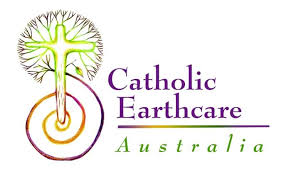
CATHOLIC EARTHCARE, AUSTRALIA.
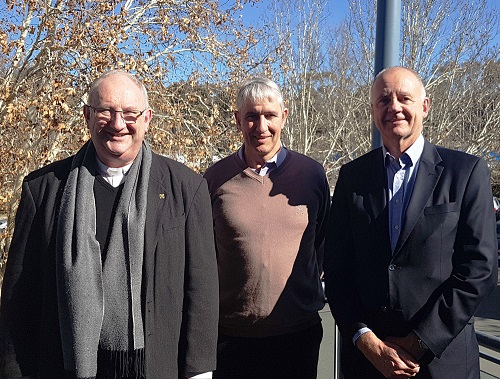
We are the ecological advisory agency to the Catholic Church…
Photo: Director, Bernard Holland and, yes, that is the Secretary of the Bishops Conference, Stephen Hackett MSC.
ACBC, the Australian Catholic Bishops Conference mandates Catholic Earthcare Australia to act as an advisory agency on ecological matters. With Laudato Si at its heart, it will promote dialogue, education, advocacy and action for ecological conversion and care for our common home.

Interview, Greg McEnnally MSC, Ministry in China.
Interview, Greg McEnnally MSC, Ministry in China.
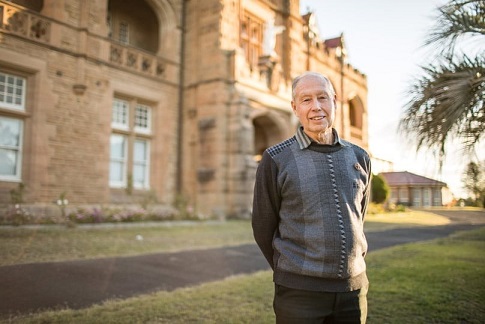
Greg McEnnally celebrated his Golden Jubilee of Ordination last weekend. This interview with the Catholic Weekly took place in 2018. He speaks about his years in China. He has also published three books on his experiences.
He had to say Mass in secret during his 10 years in China, but Fr Greg McEnnally MSC predicts that within a short time China could become the largest Christian nation on earth.
“Christians in China now vastly outnumber the communist party, Fr McEnnally told The Catholic Weekly.
“So what’s going to happen in the future? How many Chinese will be Christian? It could be, within a fairly short time, the largest Christian country on the planet.”
As a priest of the Missionaries of the Sacred Heart—an order that sends missionaries all around the world—Fr McEnnally reluctantly went to China in 2002 to teach English at the request of his superiors. He had been working in Indonesia at the time and loved it there so much that the prospect of going to China had little appeal.
After more than a decade in the country however, he came to love the Chinese people greatly, especially the students he taught at universities in Fuzhou, Tongren and Chongqing.
His gained appreciation and understanding of the Chinese culture led Fr McEnnally to write his recently-published book, China: Behind the Mask, after his return to Australia in 2014.
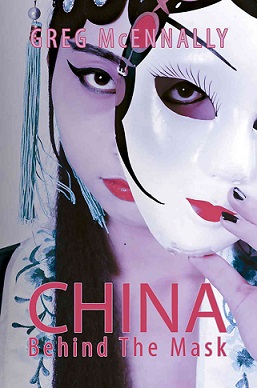
The book explores several dominant cultural aspects of China including nationalism—loyalty and love for China alone.
“Patriotism is love of your country. That is a virtue. Joan of Arc died because of her patriotism as a soldier fighting for her country. Nationalism is a whole different ball game. Nationalism is love only of your country. I love China and I love the Chinese people but that doesn’t stop me from loving Australia also. But for them, it’s just China.”
“Nationalism is by far the biggest problem in China. That’s why China has taken the South China Sea. I don’t see China as a country. I see China as an empire which is composed of many countries.”
This makes life complicated for Catholics in China. Religion has long been oppressed by the communist regime and Christianity is seen as a Western religion because it was missionaries from Europe who first brought the faith to China.
It is also seen as a problem that Catholics in China have an allegiance to the Pope in Rome, since the nationalist mindset means one’s loyalty should belong to China only.
Catholics are therefore considered traitors to their country and are carefully monitored by the government. This has forced many Catholics to practice their faith in the “underground Church,” while others practice within the state controlled “Patriotic Church.”
In recent times many churches have been demolished by the government and in some areas publicly -displayed symbols of faith, such as crosses on churches, are prohibited.
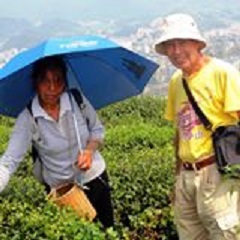
Fr McEnnally said he knows of two women who were arrested by police and “belted up” for distributing bibles in a market place. One of them died from her injuries, he said.
In order to retain his position as an English teacher, Fr McEnnally could not reveal his identity as a Catholic priest to anyone, not even to other priests.
“Some of the priests were spies for the government. We had a spy in our building too. There were spies at every Mass, reporting on who was there and who wasn’t there.”
He would say Mass secretly in his own apartment and on Sundays would attend the Patriotic Church for Mass, sitting in the pews seemingly as a lay Catholic.
“I’d put money on the plate like any other normal Catholic. I’d go to sleep during the sermons because they were long and boring,” he laughed.
Only once did someone guess his true identity. One of his students walked up to him one day in class and said, “Mr McEnally, I think you’re a Catholic priest.”
“I nearly fell off my chair,” Fr McEnnally said.
He even found ways of teaching Christian values in his English classes by organising students into small discussion groups—for the purpose of practising their English—and giving them topics to discuss such as love, relationships and happiness.
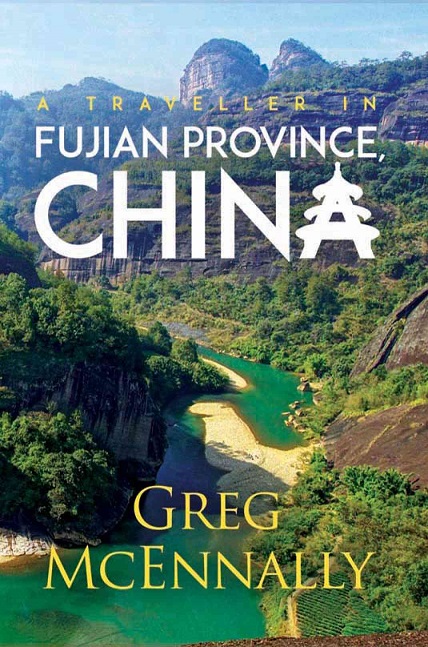
“You don’t become happy unless you try to give happiness. Your worth is judged not by what you have, in trying to accumulate wealth, but by what you give,” he taught them.
Simmering under the surface, Fr McEnnally says, there is a lot of resentment towards the Chinese government among the people. Some of his students were “intensely angry” because of their lack of freedom, he said.
During the decade Fr McEnnally was in China the number of mass protests against the government rose from about 20,000 a year to about 120,000 a year, demonstrating a growing unrest.
He believes that the communist government’s days are numbered and it’s only a matter of time before it’s toppled.
He also has great hope for the future of the Catholic Church in China. Although there are no official figures, he says it is estimated that there are about 20 million Catholics in China and about 60 million Christians of other denominations.
“So possibly as many as 100 million Christians,” Fr McEnnally said.
“The Church will be fine. It’s persecuted but it is here in Australia also. Jesus told us to expect persecution. If you’re being persecuted, you’re doing something right. I think the Church in Australia is being persecuted by secularists precisely because the Church is such a threat to them.”
“The Catholic Church is still young. It’s only 2,000 years old and will continue to develop and spread.”
“We’re only seeing China’s relationship with the Church now, at this point in history. What’s it going to be like in another 2,000 years time?”
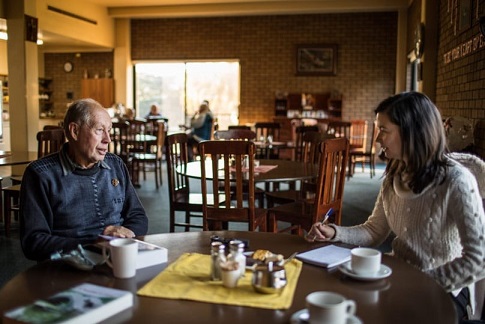
Fr McEnnally chats to Catholic Weekly journalist, Catherine Sheehan. PHOTO: Alphonsus Fok,
Catherine Sheehan is an award-winning multimedia journalist. Her articles have been published by Catholic News Service, Crux Now, the Catholic Herald and the Herald Sun.
A Midweek Restful Visit to St Mary's Towers, Douglas Park.
A Midweek Restful Visit to St Mary's Towers, Douglas Park.

Today's post features images rather than words. For many, some memories of Douglas Park, for many an invitation to visit when restrictions are raised.
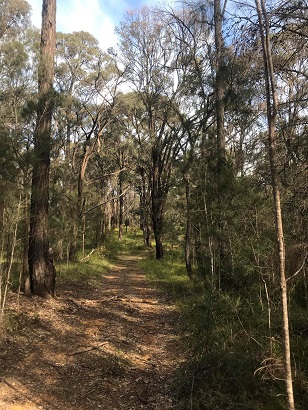
And wandering through the bush
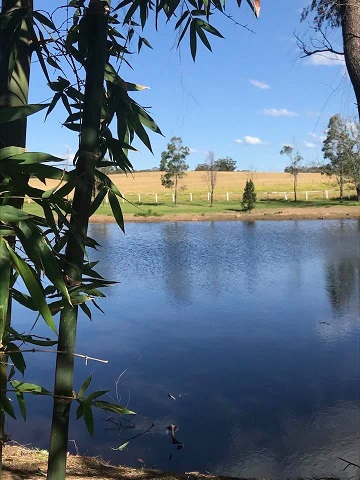
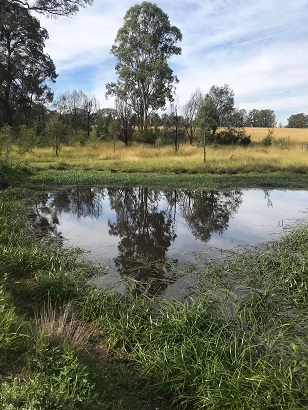
And for contemplation and prayer
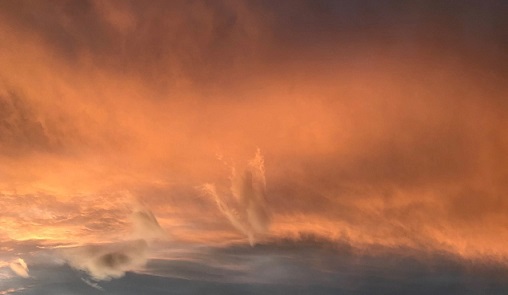
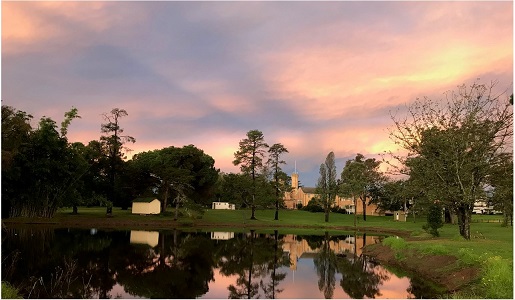
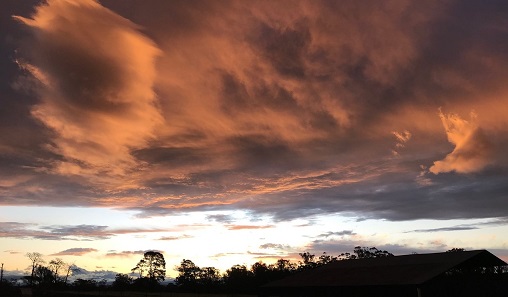
And, for many of us, a resting place
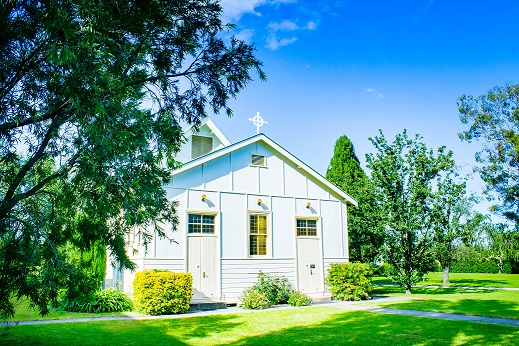
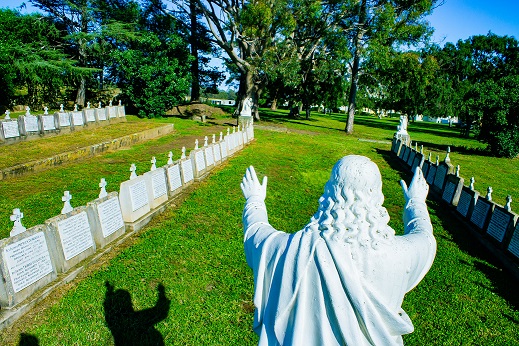
Photo credits:
Michelle Vass
Roy O'Neill
Thang Nhu Nguyen
